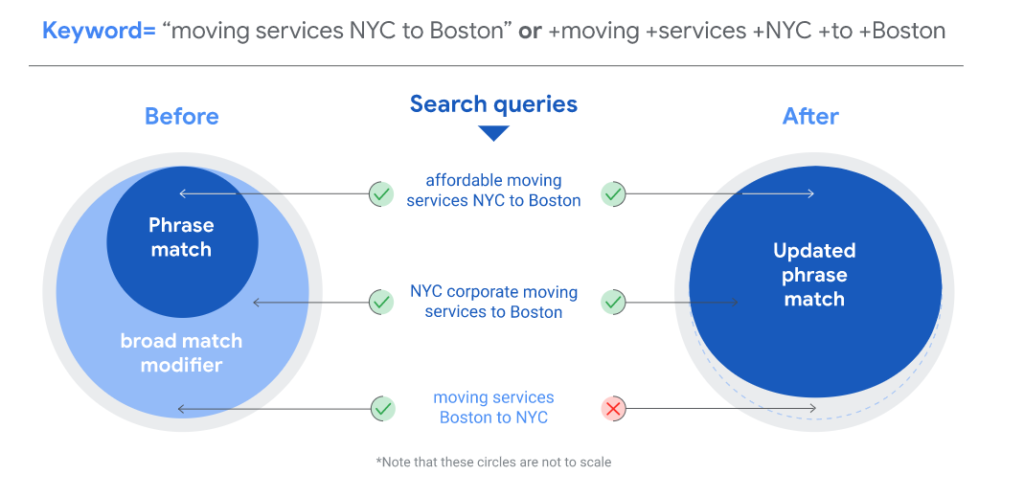Google announces Keyword Match Type Changes - How does it affect translators and business owners?
Last week (February 2021), advertisers woke up to the news that Google would start phasing out Broad Match Modifier (BMM) keywords, giving more weight to the Phrase match type.
This hardly came as a surprise to the advertising world, as Google has been adapting the match types for a while now, but it might feel a bit more daunting to those of us not so deep into the paid search ads world.
What are keyword match types?
Exact and BMM are the two most widely used match types. Exact is where a query is matched exactly as it is typed, whereas BMM allows for more variation in the words and the order they appear. BMM uses the + sign to fix the word.
In simple terms, exact match brings less traffic, but it is better qualified, as the user is looking exactly for that term, whereas BMM brings in more traffic, but it is often less targeted traffic. If you are running Google ads likelihood is that you have these two types in your account.
The Phrase match type, on the other hand, used keyword phrases (or close variations of the phrase) but with additional words before or after.
What is changing on Phrase and BMM?
Now, BMM will be phased out and eventually replaced with a wider Phrase match type, requiring specific phrases and word order, therefore making this match type less broad than Broad Match Modified used to be. The idea from Google is to serve users results better targeted to their search intent.

Which languages are affected?
From February 2021 the roll-out will begin in English, German, Spanish, French, Italian, Dutch, Portuguese, and Russian.
Ultimately, all languages will go through these changes (by July 2021).
What should I do as a business with my ads?
If you are running yourself Google Ads for your business without using Phrase this is ok, Google commit to not deactivating BMM keywords but rather change their functionality to that of Phrase match type. Hence the recommendation is not to manually switch over to phrase as this would erase those keywords’ historical data. Start by collecting data on the performance shifts and keep on top of your search query reports, to understand how best to gradually add phrase match and eventually switch off your BMM campaigns gradually.
How does the Match Type change affect me as a translator of Google Ads?
If you work translating keywords it will benefit your clients if you are familiar with these changes, especially if your language pair includes any of the languages that are being rolled out early (English, German, Spanish, French, Italian, Dutch, Portuguese, and Russian).
Expect less and less requests asking you to include the +signs and variations of your keyword but be prepared to adapt the way you approach a keyword research project. It will help if you focus on the ad groups carefully and consider longer phrases and the word order for different ways of searching.
It is also likely that you will be asked to work on search query reports often between now and the summer.